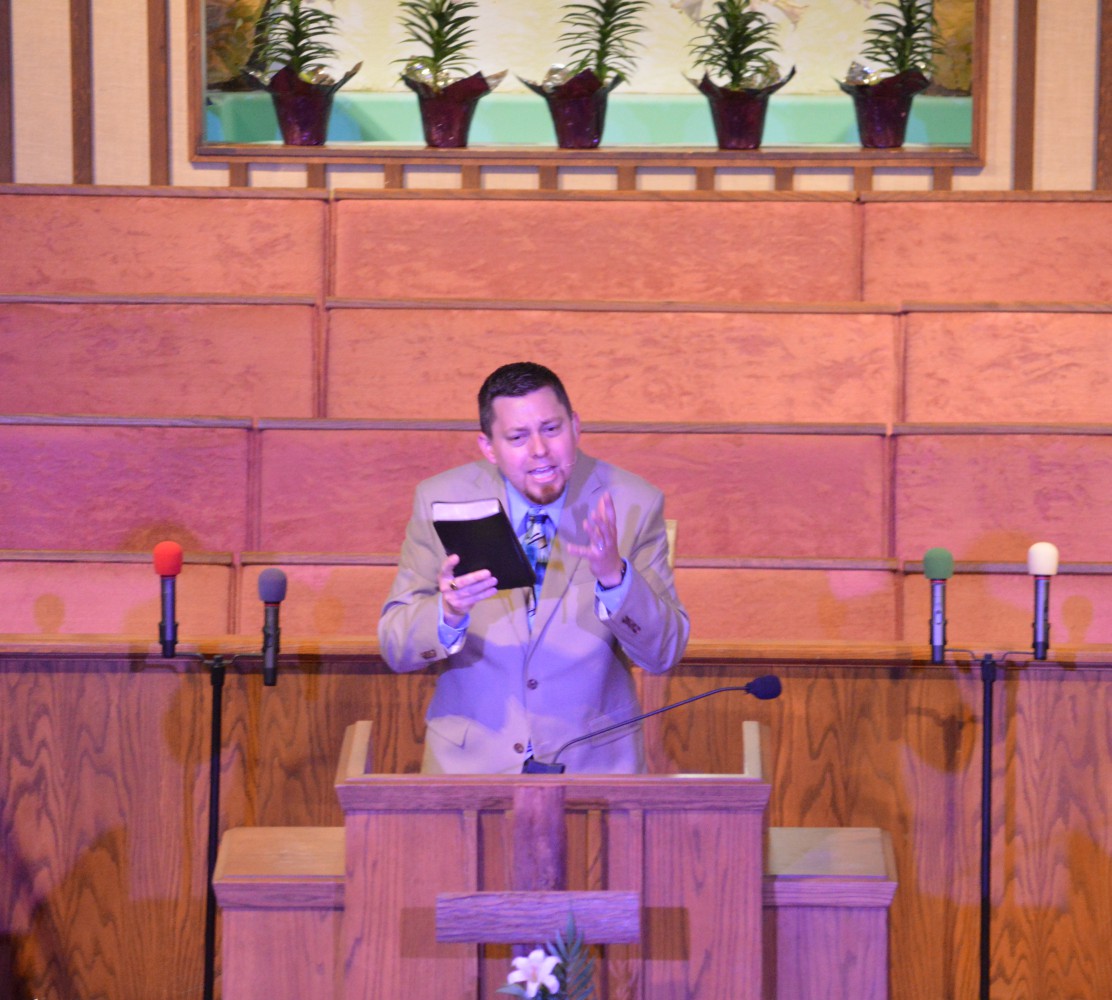I want to encourage you to focus on a spiritual principle that is true all year long, but that is especially necessary during this holiday season. The Christmas season is a joyful time for many, a heavy emotional time for others, and a very busy time for just about everybody. Our normal life and work responsibilities continue, and yet we add more events, gatherings, shopping responsibilities and so much more to our schedules. The opportunities for us to serve others are tremendous, and yet, if we are not careful, they can lead to such exhaustion, stress, and frustration that the spiritual meaning and purpose of this season no longer affects our heart. The reason for the season may be on our lips and in our songs, but we are too overwhelmed to allow it to move our hearts.
That is why I want to give you (and myself) a reminder to make time to be still. To be still physically, and to be still spiritually before the Lord. It might be harder than ever to make time for this during the Christmas season, but it is more necessary than ever.
There were many times in which God’s people faced an enemy and God told them (as a nation or army) to be still, to stand still, and to see God fight for them and deliver the enemy into their hands. But this principle of being still, in our heart, soul and body, is also a very personal one, that we tend to neglect, and it always has a detrimental effect in our life, our relationships, and our walk with the Lord.
Take a moment to read these passages that talk about being still, about quietness, and about internal rest. Each gives us an important principle about being still.
Being still reminds us of who is in control
Psalm 46:10 Be still, and know that I am God: I will be exalted among the heathen, I will be exalted in the earth.
Being still is about connecting with God
Psalm 4:4 Stand in awe, and sin not: commune with your own heart upon your bed, and be still. Selah.
Being still allows us to hear the voice of God
1 Kings 19:12 And after the earthquake a fire; but the Lord was not in the fire: and after the fire a still small voice.
Being still is what leads to spiritual strength
Isaiah 30:7 For the Egyptians shall help in vain, and to no purpose: therefore have I cried concerning this, Their strength is to sit still.
Isaiah 30:15 For thus saith the Lord God, the Holy One of Israel; in returning and rest shall ye be saved; in quietness and in confidence shall be your strength: and ye would not.
Being still is a personal choice
Psalm 131:2 Surely I have behaved and quieted myself, as a child that is weaned of his mother: My soul is even as a weaned child.
Being still is a priceless blessing
Proverbs 17:1 Better is a dry morsel, and quietness therewith, than an house full of sacrifices with strife.
Being still leads to spiritual rest
Exodus 33:14 And he said, My presence shall go with thee, and I will give thee rest.
Psalm 37:7 Rest in the Lord, and wait patiently for him: fret not thyself because of him who prospereth in his way, because of the man who bringeth wicked devices to pass.
Matthew 11:28-29 Come unto me, all ye that labour and are heavy laden, and I will give you rest. Take my yoke upon you, and learn of me; for I am meek and lowly in heart: and ye shall find rest unto your souls.
At different moments in the ministry of Jesus, with the crowds around Him, and the constant movement, we read that Jesus “stood still” (Matthew 20:32; Mark 10:49) and interacted personally with specific individuals and their need. Even Jesus made it a priority to be still, to be quiet and wait before the Father, often rising long before daylight.
This is also why the principle of the sabbath is so necessary for us as human beings, and for our spiritual walk with God. We must be intentional about making time to be still, to rest and to be at rest. Otherwise, we begin to pay for it in many different ways. And if that is true all year long, how much more during one of the most busy and stressful times of the year.
So, let me encourage you to make time to be still. How? You may need to get up earlier than others in your house. You may need to remove certain apps from your phone, turn off your notifications throughout the day, and keep your phone far away when you are spending time with the Lord. You may need to block off a day, or even half a day, with no outside agenda, maybe to sleep a little longer, or even nap. You may need to turn off the music or radio in the car and give your heart and mind the gift of silence, to listen to the Lord, as you commute. You may need to go for a walk and seek to quiet your heart from the constant list of tasks and to-do’s. Whatever you need to do, make time to be still, to slow down, to commune with the Lord. Allow the Word of God and the Spirit of God to do a work of renewal, refreshment and rest in your soul this Christmas.
What are some practical ways in which you have learned how to be still before the Lord? Share them in the comment section below.










